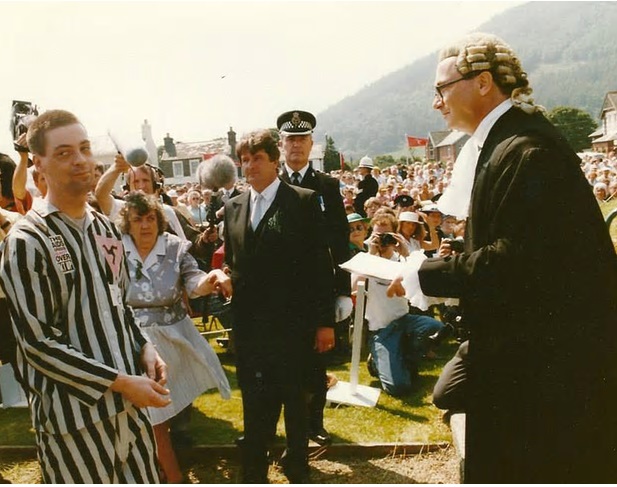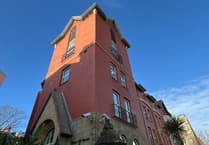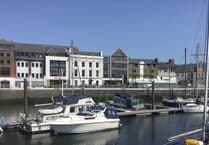The month of June is marked the world over as Pride month, a period dedicated to the celebration and commemoration of lesbian, gay, bisexual, transgender and queer (LGBTQ+) pride. But why do we need Pride here on the Isle of Man? Siobhan Fletcher looks at the queer history of our island in the second of a five-part series.
We’re now two weeks into June, the month marked the world over as Pride month.
That’s thanks, in part, to the legacy of the Stonewall uprising – which we touched on last week – that started on June 28, 1969.
And now that we’ve looked at the international origins of the Pride movement, it’s time to turn the focus a little closer to home.
Just two years ago, the Isle of Man held its first public pride event at the Villa Marina Gardens in Douglas.
It was preceded by a march along Strand Street, with participants carrying a 50-metre rainbow flag. It was quite the sight – and we’ll get into Isle of Pride more in the coming weeks.
But long before public partying in the nation’s capital, life for the LGBTQ+ community here looked very different.
GROWING UP
Homosexual acts were decriminalised here in 1992 – 25 years later than in England and Wales, and 12 years after Scotland. Before then, same-sex sexual activity was a criminal offence.
So, what was it like growing up at a time when just being yourself was illegal?
Simon Maddrell is a Manx-born poet, writer and performer. He said wider awareness of what it meant to be gay was something that ‘didn’t really exist’ at the time.
He said: ‘Certainly in my earlier childhood it was images of fun and entertainment for the masses. You had Liberace and John Inman on Are You Being Served – very camp, effeminate figures. So apart from where we were there to provide the entertainment for people, our existence just wasn’t there.
‘Therefore, one had no reference point. So, the feelings that you have, you have no idea what they mean because you don’t have anything to connect them to.
‘It’s very difficult as a child to reconcile and understand feelings when you’ve got no reference point that these feelings are actually [to do with something] that is real, does exist, other people feel it too.’
Richard Butt is the editor of Media Isle of Man – including this iomtoday.co.im. He says growing up here pre-legalisation was a ‘scary’ experience.
He said: ‘In the days before the internet there was very little information. It was all caricatures on television and so on.
‘During the eighties there was the AIDS crisis combined with the Thatcher government’s imposition of Section 28, so it was very homophobic atmosphere in which to grow up.’
Back before decriminalisation, those appearing in court would be reported on in the press, as is the case with anything that is against the law.
A number of young men took their own lives during this period, after being arrested or simply outed to their families.
I spoke to Richard about court reporting, and how he felt about reports addressing his fellow community.
He said: ‘There are two factors I suppose. In the newspapers, we were able to have opinions in the comment column. And indeed, we did.
‘I’m proud to say that the Examiner, under Lionel Cowin in those days, always said it should be decriminalised in the comment column. The rival newspaper, the Manx Independent at the time, didn’t quite go that far.
‘Also, Lionel, to his great credit, gave the Ellan Vannin Gay Group a column, before it was legalised, and so that information was out in the Courier at the time.
‘In terms of court reporting, it’s a very very different situation. We report the courts – we don’t decide the laws. At the moment, we have laws against all sorts of things, [for example in terms of] drugs which I don’t agree with, but we report the courts as they happen, as the laws have been passed by the democratically-elected politicians.
‘At that time the law was that homosexual acts were against the law, and people were prosecuted because of that.’
PROTEST
As is well documented, on Tynwald Day July 5, 1991, gay rights campaigner Alan Shea exercised his democratic right to present a petition of grievance to the Island’s Parliament, in St John’s. His petition sought a change in the Manx law relating to the decriminalisation of homosexuality.
He was joined on the day by members of Outrage, a UK-based pressure group, to stage a lawful protest. They brought placards and wore T-shirts with slogans such as: ‘NOT GUILTY’.
In presenting his petition, Alan made a statement. He had shaved is head and was clad in a mock concentration camp uniform – consisting of pyjamas (bought from Marks & Spencer in Strand Street) and painted with grey and black stripes.
On either side of his chest, he had a badge quoting gay protest group ACT UP (AIDS Coalition to Unleash Power) stating that the AIDS crisis is not over, and a pink triangle containing the three legs of man (the pink triangle was the symbol used to mark LGBTQ prisoners in the Nazi camps – not dissimilar to the yellow Star of David used to signal Jewish prisoners).
Beneath the pink triangle was the number 626262 – the Isle of Man Government phone number at the time.
No detail was accidental, as Alan said: ‘I took it out for its first day out at London Pride in 1991, without the Three Legs of Man on it. When we got back to the island, we said “we’ve got to focus this costume, what can we do?”. And then we added the Three Legs of Man and put the government phone number below.
‘They changed that number after the costume was worn, and they banned outrageous costumes, so no-one can wear a costume similar to this now. But it was to put the focus on homophobia in the Isle of Man and to get [rid of] an outdated law.’
As a recent Manx National Heritage article put it, Alan was ‘deliberately drawing parallels between the treatment of gay people on the Isle of Man and Nazi persecution of homosexuals during the Second World War.
‘With the threat of imprisonment for acts of homosexuality, many local gay people felt isolated and imprisoned within their own communities and targeted by police activity.’
HUMAN RIGHTS
Behind every successful protest, there are lawmakers fighting to make the changes necessary to be able to render it as such.
In this case, a handful of MHKs wanted to see Alan’s vision take shape.
One of them was Hazel Hannan, who was elected in 1986 as the MHK for Peel. She says it all came down to a simple principle: human rights.
But, she said it wasn’t easy.
‘Eventually we were able to get the law changed, in 1992,’ she said. ‘But it was a long uphill struggle. Miles Walker was Chief Minister at the time [and] he came under a lot of threats, his family did, that was nasty.
‘I think most of us came under some sort of pressure – like heavy breathing and people saying nasty things down the phone, the kids picking up the phone and so on.
‘But generally, within the British Isles and further afield, in places like Brussels, people supported us. They knew the pressure we were under. We wanted change.
‘We wanted respect for our people, and we didn’t think it would be any different. We didn’t think people would behave differently, we didn’t think we’d be invaded by homosexuals.
‘We thought the Manx people were very understanding and had already accepted homosexuals living amongst them and so the law was just something we felt was quite natural to change.’
She added: ‘I’m speaking to you on a day when the most horrendous law has been brought in in Uganda – which is a member of the Commonwealth. People [there] must be very frightened. I feel for them, because if somebody thinks somebody is gay they have to go to the police. If they don’t, they could be imprisoned.
‘We have to be aware that things can happen here as well. The law can be changed – we’ve got to remain vigilant.’
This is an extract from the second instalment of several articles looking at the history of Pride.
To hear more, tune into the next episode of ‘A Brief History of…’ on Manx Radio tonight (Tuesday, June 13) at 6pm.
Next time, we will look at what went into producing the first public pride here on the Isle of Man.

.png?width=209&height=140&crop=209:145,smart&quality=75)


.png?width=209&height=140&crop=209:145,smart&quality=75)